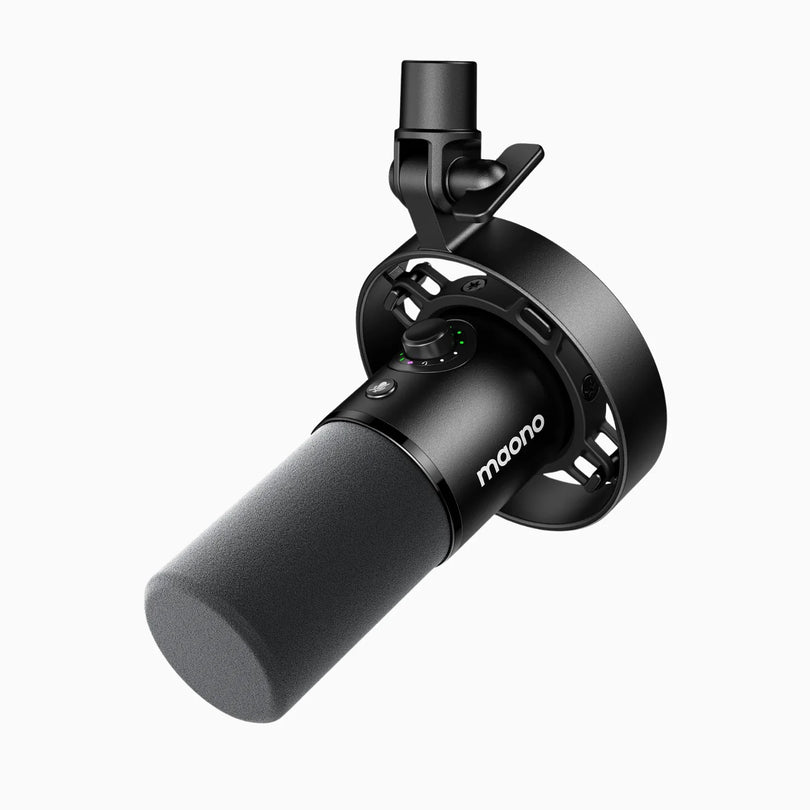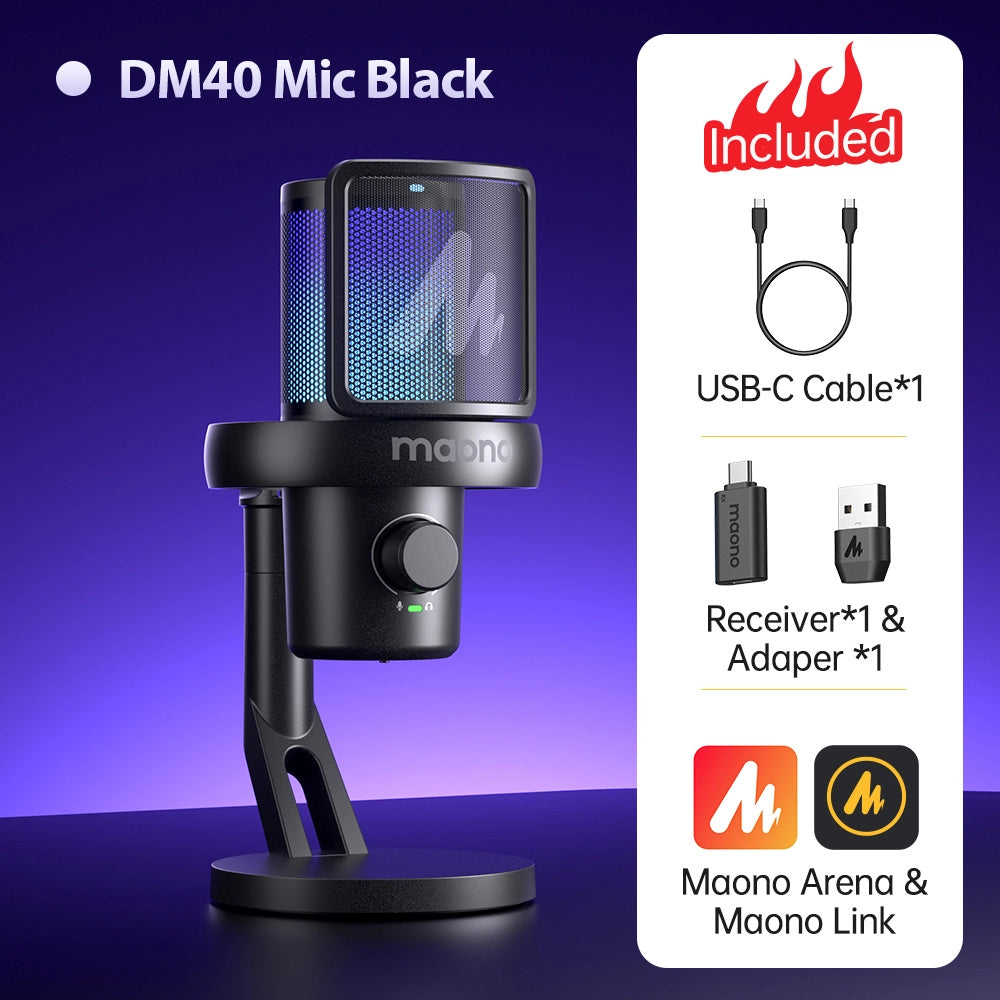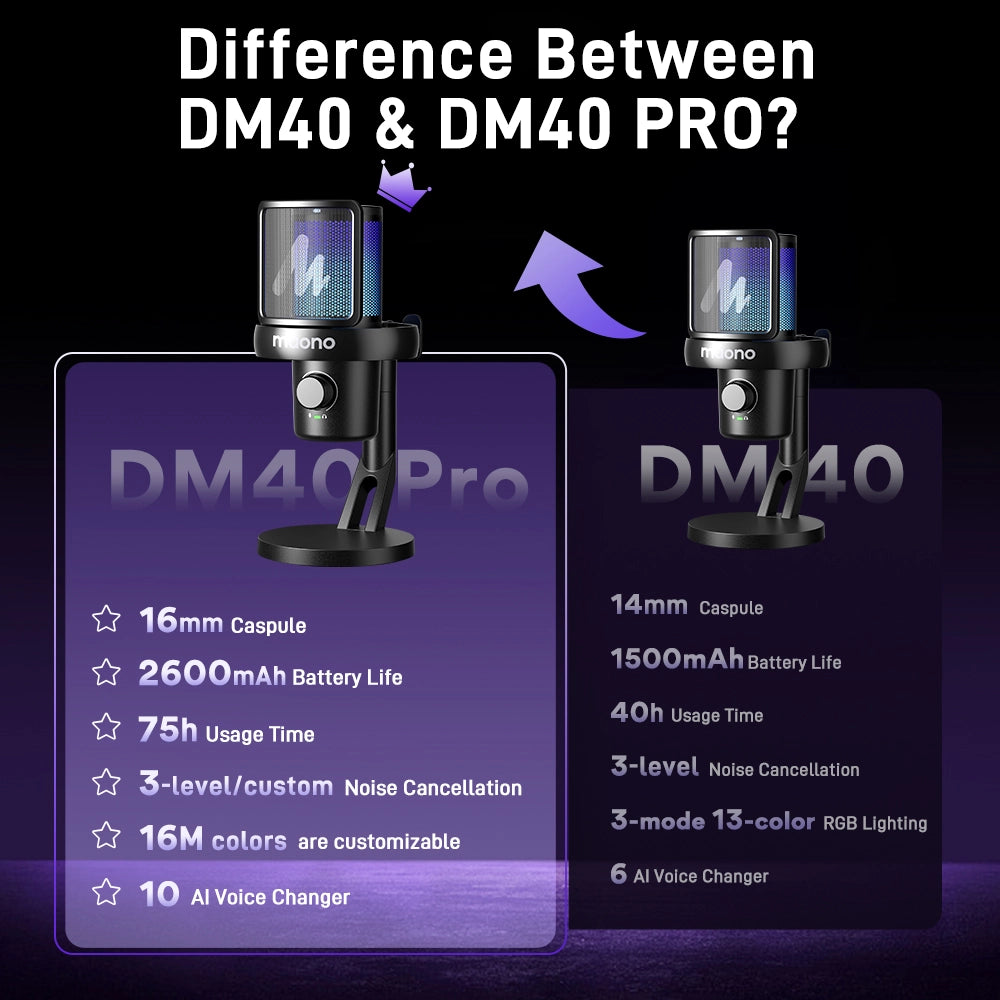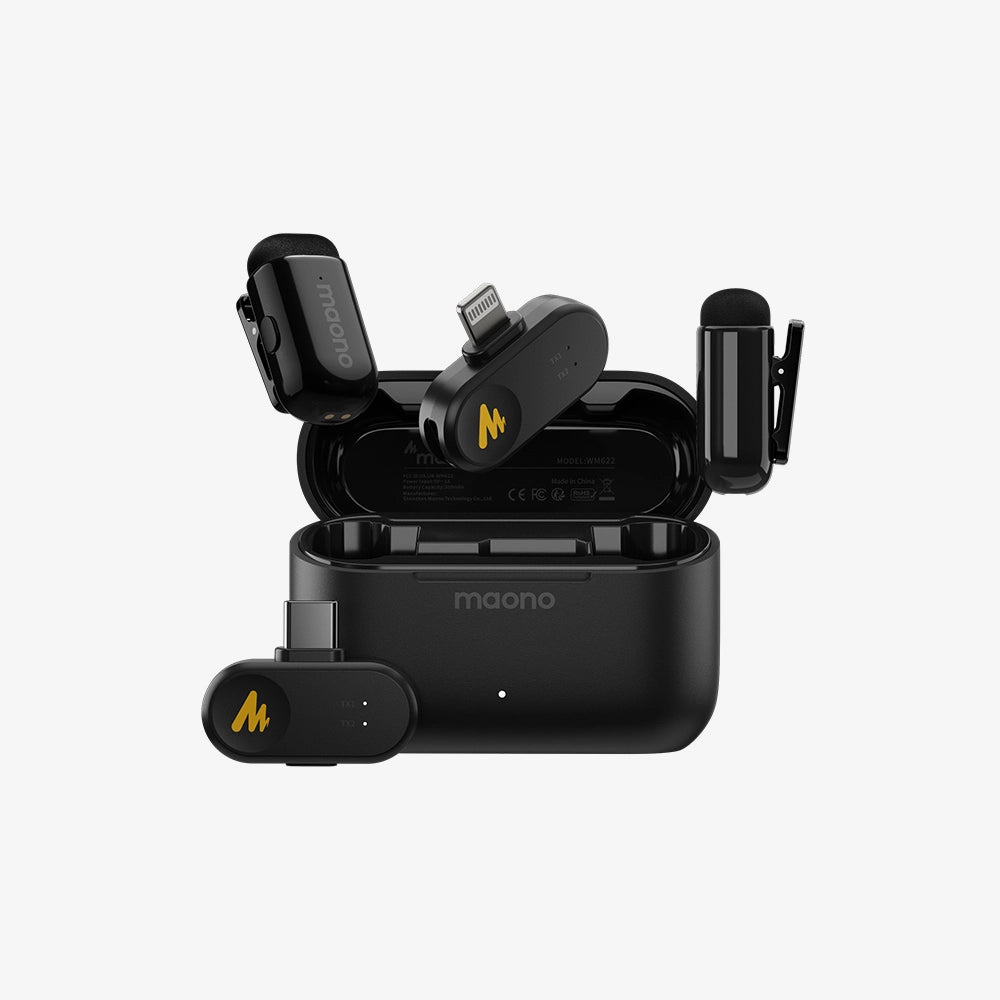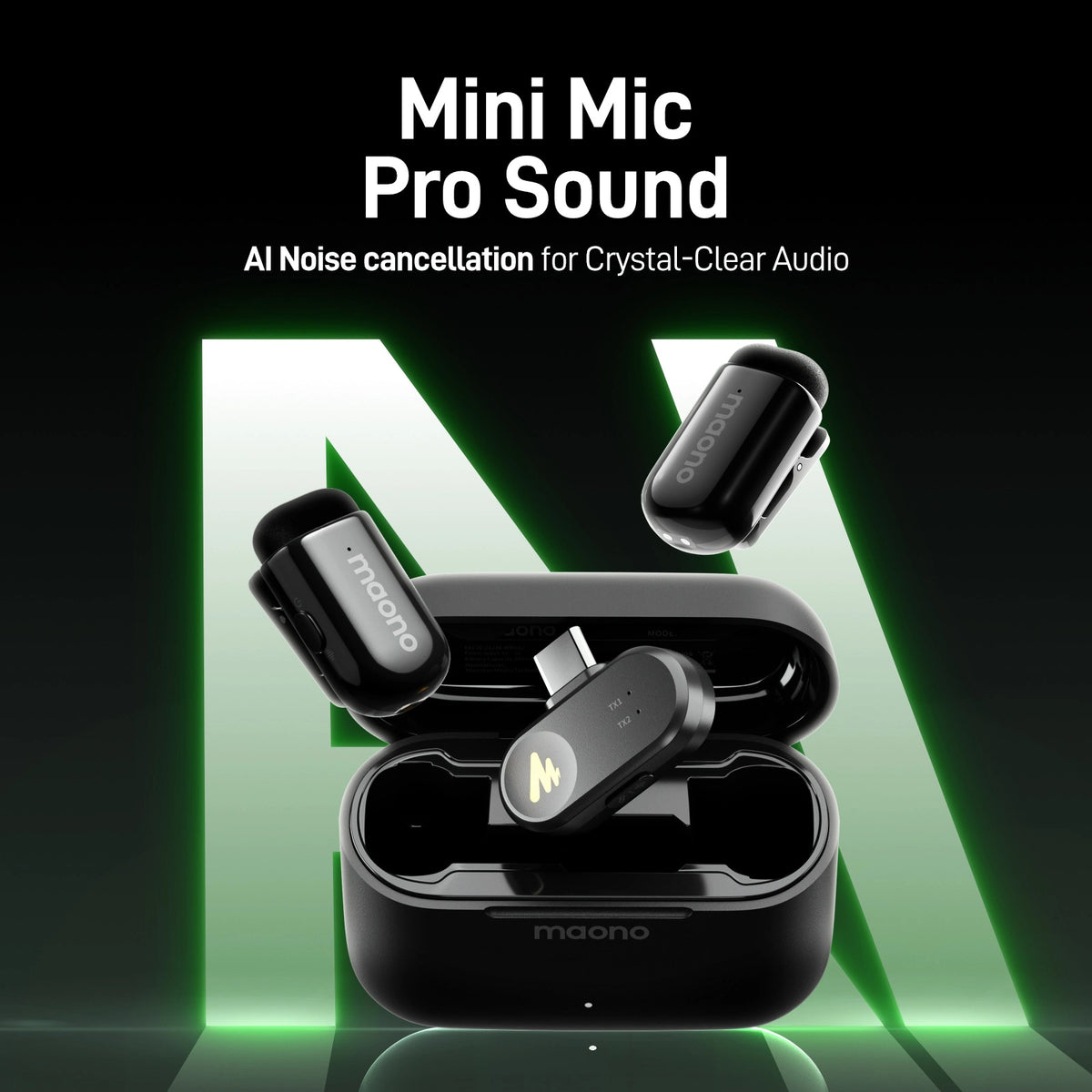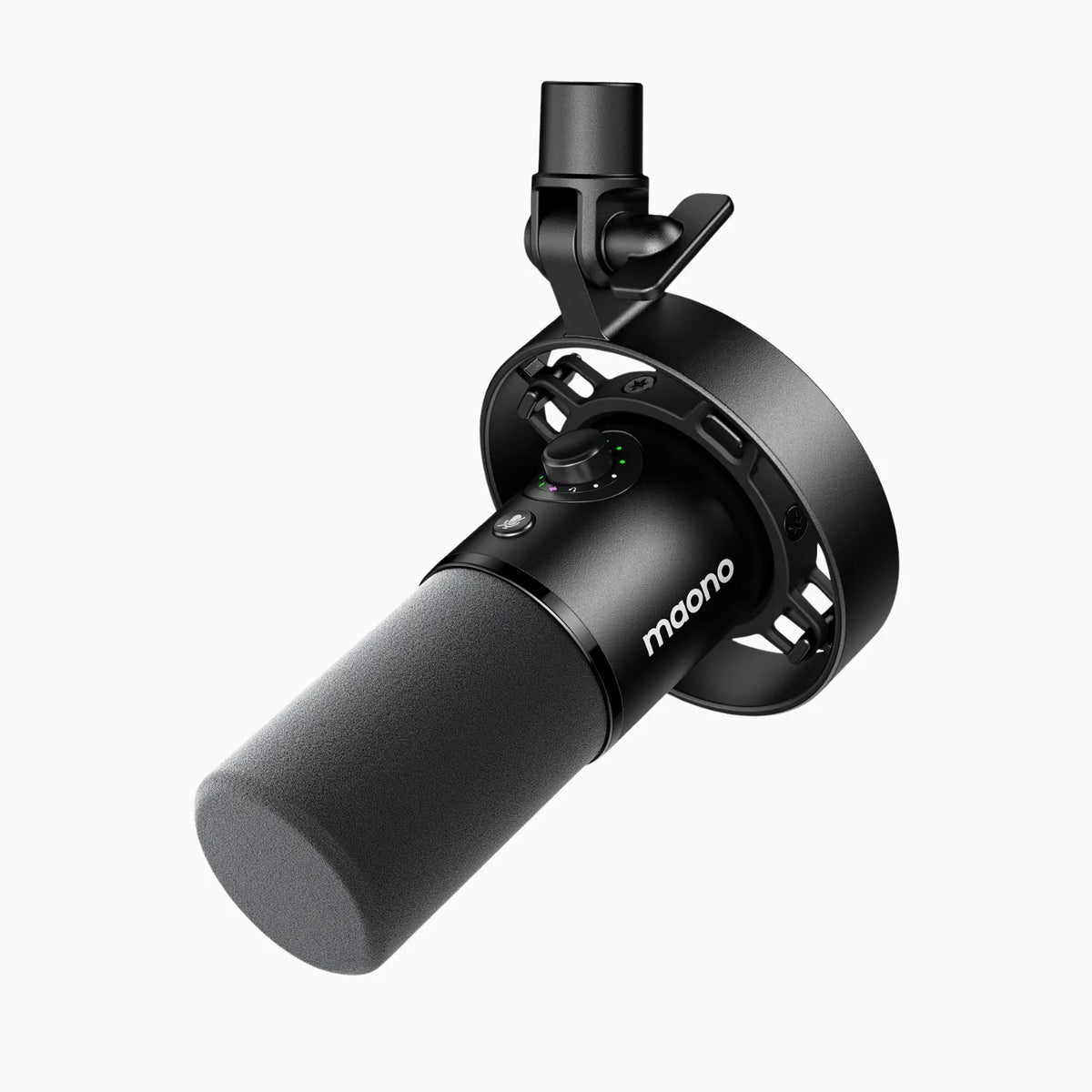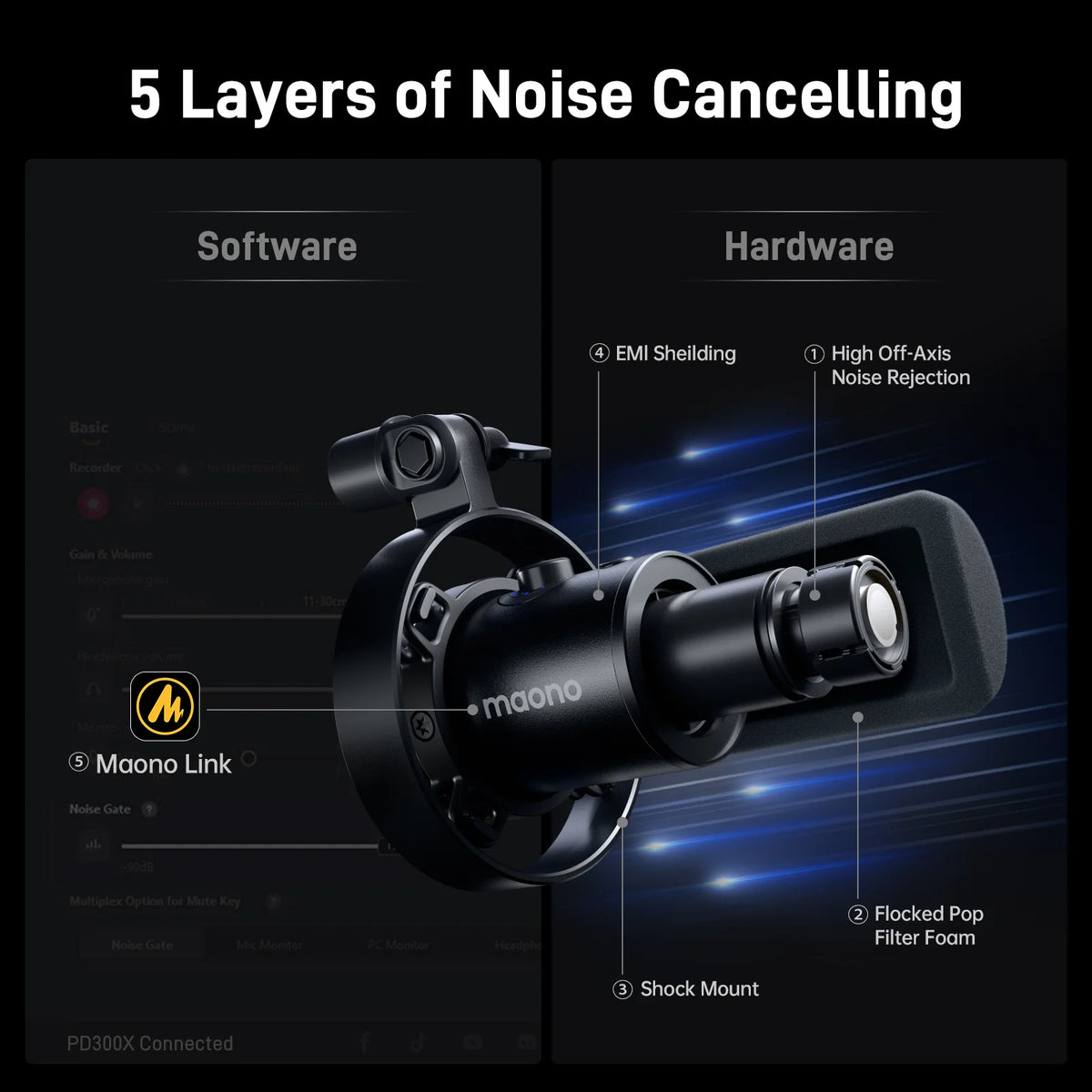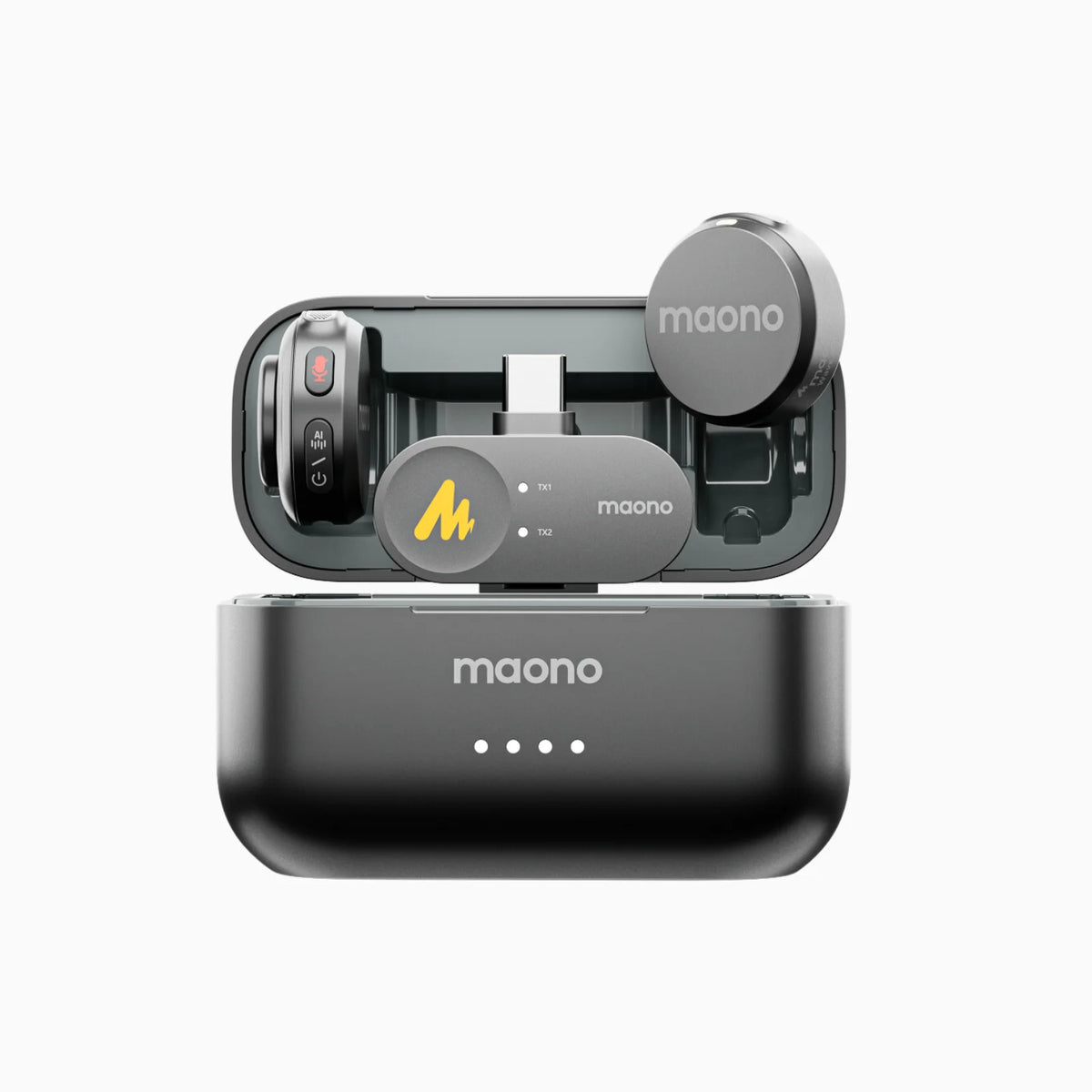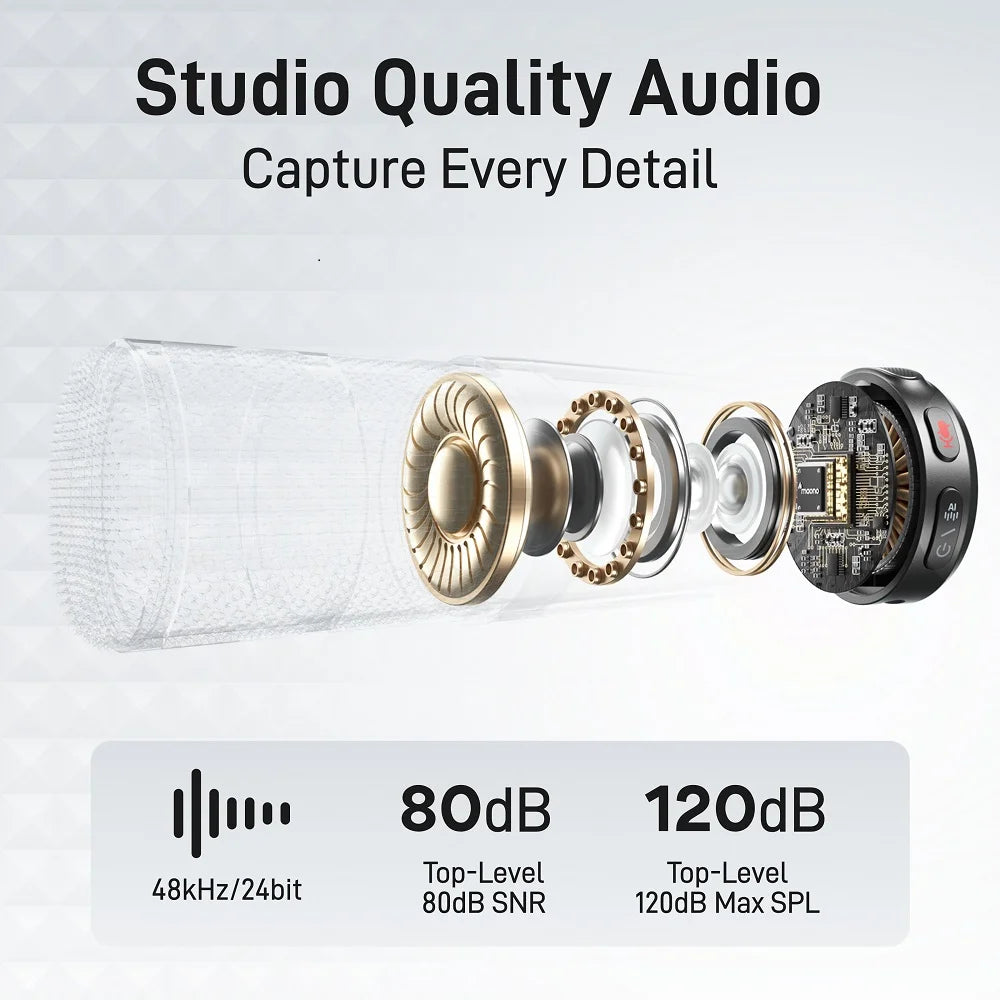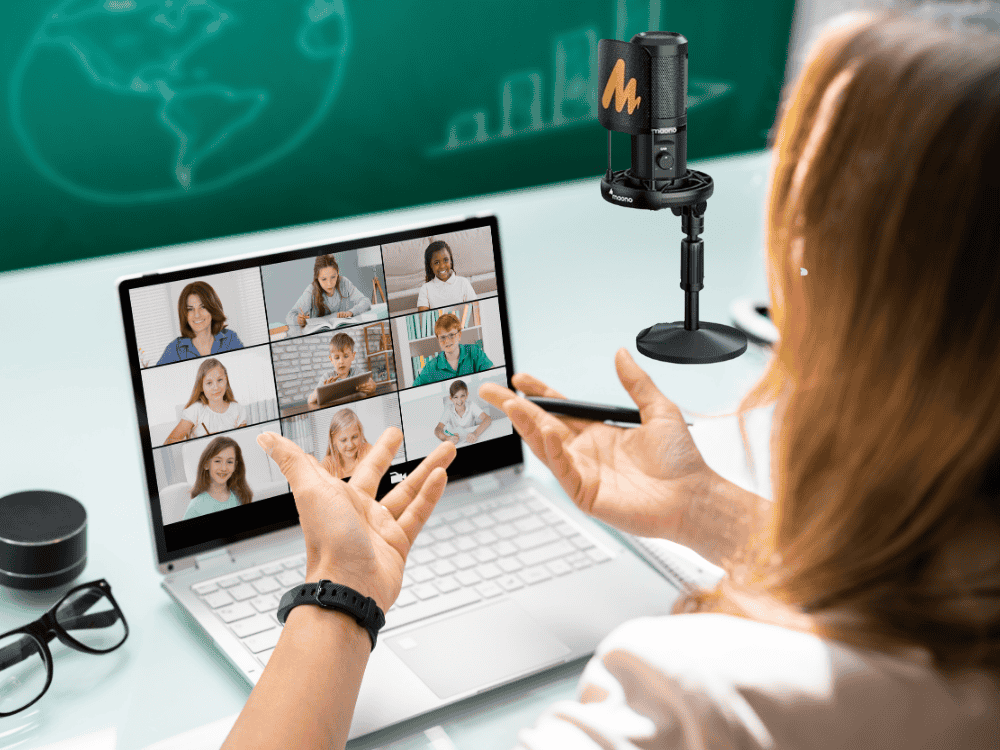Introduction to Mic Boom Arms for sound recording
Sound recording is a crucial aspect of any professional audio production. Whether you're a podcaster, musician, or voiceover artist, having the right equipment is essential for achieving high-quality sound. One such piece of equipment that can greatly enhance your recording experience is a microphone stand for recording, particularly a boom arm. A boom arm is a type of microphone stand that features an extended arm (the "boom") that can be adjusted in length and angle, providing added flexibility for positioning your microphone perfectly. It features an extended arm (the "boom") that can be adjusted in length and angle, providing added flexibility for positioning your microphone perfectly.
Some friends have this question if your boom arm make your microphone sound any better? Actually, microphone boom arms are beneficial because they allow for more flexibility in microphone placement, which can result in improved sound quality and reduced background noise. They also free up your head and ears, making them more comfortable for long recording or streaming sessions. The fact is that the boom arm does not directly make your microphone sound better, but it can help you to adjust your microphone to a suitable position to avoid collecting background noise; then overall, the recording quality will be much better than you think.
In this buying guide, we will explore the benefits of using a boom arm for professional sound recording, factors to consider when choosing the best desktop mic stand, and some top-rated options, including the best mic stands for streaming and the best microphone stands for home studio setups.
What Makes the Best Desktop Mic stand?
When looking for the best desktop mic stand, there are several features to consider, such as stability, adjustability, and compatibility with your microphone. For streamers, the best mic stands for streaming typically offer flexible positioning and a sturdy base to minimize vibrations and noise. On the other hand, those setting up a home studio will want a stand that provides solid support for longer recording sessions and a professional appearance.
Top Five Picks for the Best Desktop Mic Stands for Recording
Tripod Microphone Stand: These types of stands are very versatile and used in a wide variety of situations. They feature a three-legged tripod base that provides superior stability while still being very easy to fold and carry, making them ideal for musicians on the go.
Microphone Boom Arm Stands: These specialized stands feature an extendable boom arm, making them ideal for situations where you need the mic to get over physical obstacles, such as drum kits, guitar amps, or even ensembles of musicians.
Desktop Microphone Stands: As the name suggests, these are mini-sized stands designed to fit perfectly on a desktop or other limited-space setup. They are especially popular in podcasting scenarios where desktop accessibility is crucial. Check out the best desktop microphone stands in Maono.com.
Low Profile Stands: These stands are uniquely designed with a shorter height, making them perfect for miking low-frequency instruments like kick drums and guitar amps. Their low profile ensures you capture the correct audio levels from these specific instruments.
Round Base Microphone Stands: Known for their thick, round base, these stands provide ultra-stable support for your microphone. However, due to their weight and design, they are less portable than other types and therefore more suitable for stationary settings.
Generally, more users will install a retractable boom arm on their desktop, so that they can move the mic stand directly in front of them during use, and the sound reception effect will be relatively better. It is generally used in games, and live broadcasts, There are many scenarios such as podcasting and recording.
Here’s a comparison table featuring different types of desktop microphone stands (updated):
|
Microphone Stand Type |
Description |
Pros |
Cons |
|
Fixed Desktop Microphone Stand |
A compact, stationary stand with a sturdy base. Often made of metal or plastic, designed for desktop use. |
- Compact and stable- Easy to set up- Affordable |
- Limited adjustability- Not ideal for users needing flexible positioning |
|
Adjustable Desktop Microphone Stand |
A stand with adjustable height and angle, offering more flexibility in positioning the mic. |
- Adjustable height and angle- Provides better ergonomics- Great for podcasts and streaming |
- Takes up more space- May require additional stabilization for heavier microphones |
|
Tripod Desktop Microphone Stand |
Features three legs for added stability, similar to a traditional tripod design but compact for desktops. |
- Lightweight and portable- Easy to store- Stable for most microphones |
- Limited height adjustability- Can be bulky for small desks |
|
Mini Desktop Microphone Stand |
A smaller version of a desktop stand, ideal for compact spaces or where minimal setup is needed. |
- Space-saving- Highly portable- Good for smaller microphones like lapel mics |
- Not suitable for larger or heavier microphones- Less stability for extended recording sessions |
|
Boom Arm Desktop Microphone Stand |
A versatile arm with an adjustable boom that allows flexible positioning of the microphone over the desk. |
- Maximum flexibility- Eliminates desk clutter- Reduces handling noise |
- Takes up more desk space- Requires proper installation- Can be more expensive |
|
Heavy-Duty Desktop Microphone Stand |
A sturdy, larger stand with a solid base designed to support heavier microphones. |
- Supports heavy microphones- Very stable- Durable |
- Can be bulky- Typically more expensive- Not ideal for small desks |
Factors to Consider when Choosing a Microphone Stand for Recording
Weight capacity: When selecting a boom arm for professional sound recording, there are several factors to consider. Firstly, you need to ensure that the boom arm is compatible with your microphone. Different microphones have varying sizes and weights, so it is important to choose a boom arm that can securely hold your specific model. Additionally, consider the length and reach of the boom arm. This will determine how far the microphone can extend, allowing you to adjust its position according to your recording setup.
Stability and durability: Another crucial factor is the stability and durability of the boom arm. Look for models that are constructed from high-quality materials and have sturdy joints and clamps. This will ensure that the boom arm remains steady during recording sessions and can withstand regular use. Additionally, consider the ease of use and adjustability of the boom arm. Look for features such as adjustable tension knobs or quick-release mechanisms, which allow for effortless positioning and locking of the microphone.
Ease of installation: If you are just beginning with picking up a boom arm for your microphone, then I will suggest you pick up the one with easy installation, it would be perfect if it can automatically sort out the cable inside to make it look more portable and compact.
Desk Space Usage: This is one of the most important considerations. You must first determine the width, length and thickness of your desktop to see if the microphone you are about to buy can fit it, avoid your table is not big enough for the boom arm you buy to extend or retract. or the table is too thick to make it compatible.
Boom arm accessories and additional features to consider
In addition to the boom arm itself, there are several accessories and additional features that can enhance your sound recording experience. Pop filters, for example, are essential for reducing plosive sounds and minimizing unwanted noise from breaths. Shock mounts are also important for isolating the microphone from vibrations and handling noise. Some mic boom arms may come bundled with these accessories, while others may require separate purchases.
Another feature to consider is cable management. Look for boom arms that have built-in cable routing systems or cable clips to keep your recording setup organized and free from tangled cables. Additionally, consider the mounting options available with the microphone boom arm. Some models may come with various mounting options, such as desk clamps or wall mounts, allowing for greater flexibility in setting up your recording space.
Setting up and using a boom arm for optimal sound recording
Setting up a boom arm for optimal sound recording is a straightforward process. Start by attaching the boom arm to a sturdy surface, such as a desk or mic stand. Ensure that the boom arm is securely fastened and that all joints and clamps are tightened. Next, attach your microphone to the end of the boom arm, using a shock mount if necessary. Position the microphone at the desired height and angle, taking into consideration the sound source and recording environment.
Once the boom arm is properly set up, it is important to adjust the tension and balance to achieve optimal performance. Use the tension knobs or quick-release mechanisms to adjust the height and angle of the microphone. Experiment with different positions to find the sweet spot that captures the desired sound. It is also recommended to test the setup by recording a sample and listening back to ensure that the sound quality is satisfactory.
Can any boom arm work with any microphone?
Actually, you have to consider the compatibility of your microphone head and stand, Some stands are more suitable for microphones with shock mounts, and some are not. You might have to consider the weight of the microphone head, if your microphone head is relatively heavy, it is not suitable to use a lighter stand, otherwise, it will be top-heavy, which will not be conducive to the use of your microphone.
Benefits of using a boom arm for professional sound recording
A boom arm serves as a versatile and convenient tool for positioning your microphone during recording sessions. One of the primary benefits of using a boom arm is its ability to eliminate unwanted vibrations and handle noise. By suspending the microphone in mid-air, it allows for a more stable and cleaner sound capture. This is especially beneficial when recording vocals or any other sound source that requires precision and clarity.
Furthermore, a boom arm offers improved ergonomics for the user. It eliminates the need to hold the microphone for extended periods, reducing strain on the arms and hands. This is particularly advantageous for long recording sessions, as it allows you to focus on your performance without any discomfort. Additionally, a boom arm provides greater flexibility in positioning the microphone, enabling you to find the optimal placement for capturing the desired sound.
Using a microphone stand can significantly improve sound quality and recording efficiency in various setups.
Enhanced Recording Efficiency
- Hands-Free Operation: Using a stand allows the performer or speaker to have their hands free, enabling them to focus on delivering their content without having to hold the microphone. This is especially beneficial in podcasting and live performances.
- Quick Adjustments: Many microphone stands are adjustable, allowing users to easily change the height and angle of the microphone as needed. This flexibility can save time during recording sessions.
Examples of Different Recording Setups:
- Home Studios: In a home studio setup, a boom arm stand can be mounted to a desk, allowing for easy positioning of the microphone in front of the vocalist or instrument without taking up valuable space. This setup can enhance the audio quality by ensuring the microphone captures sound from the optimal angle while reducing background noise.
- Podcasting: For podcasters, a sturdy desk stand can provide stability and convenience. A microphone positioned at the right height ensures that hosts and guests are captured clearly. Additionally, having the microphone securely positioned prevents handling noise, which can disrupt the flow of conversation and affect overall sound quality.
- Live Performances: In live settings, using a floor stand can ensure that the microphone is properly positioned for singers or speakers while allowing for dynamic movement. This setup helps maintain audio clarity, as the microphone remains at a consistent distance from the performer’s mouth, even during movement. Also, using a pop filter attached to the stand can help reduce plosive sounds, enhancing the overall sound quality during performances.
Overall, a microphone stand is an essential tool for improving both sound quality and recording efficiency, regardless of the setup. Whether in a home studio, podcasting environment, or live performance, investing in a good microphone stand can make a significant difference in the final audio output.
Here are the three best desktop mic stand for streaming and recording for you to choose from
Maono B01 microphone boom arm
B01 fits a relatively light microphone head, plus it can rotate 360 degrees, The adjustable arms can be folded up and are easy for you to carry around and allow you to adjust the suitable angle and height to record your good voice.
Easy for you to adjust the position and angle of your mic. Equipped with strong springs, this metallic mic boom arm is stable for use. (Max load: 2.2lbs)

Maono BA90 microphone boom arm
If you don't like the microphone taking up too much public space and want to look cleaner and tidier, then this BA90 must be the best choice. A classy aluminum build, concealed springs, and cleverly disguised cable management system offer a suave on-camera experience. The hand-tightened friction hinges reduce unwanted noises during recording, and a 360-degree swivel allows you to adjust the mic position in any direction you want.

Maono BA92 microphone boom arm
In comparison, BA92 occupies a larger desktop area. In addition, its height will be lower, but the installation method is the same. They are all 360-degree rotatable brackets that can be installed on the desktop.

Maintenance and care tips for your boom arm
To ensure the longevity and optimal performance of your boom arm, it is important to practice proper maintenance and care. Regularly inspect the joints, clamps, and other moving parts for any signs of wear or damage. Clean the boom arm using a soft cloth or brush to remove any dust or debris that may accumulate over time. Avoid applying excessive force or pressure when adjusting the boom arm to prevent unnecessary strain on the joints.
Additionally, be mindful of the weight capacity of your boom arm and avoid exceeding its limits. This will prevent any potential damage or accidents during recording sessions. When not in use, store your boom arm in a safe and secure location, away from moisture or extreme temperatures. By following these maintenance and care tips, you can ensure that your boom arm remains in optimal condition for years to come.
Budget-friendly boom arm options for beginners
For beginners or those on a tight budget, there are several budget-friendly boom arm options available that offer good value for money. Maono B01 Boom Arm mentioned earlier, is a popular choice among beginners due to its affordability and reliable performance. Another option is the Maono BA92 Boom Arm, which provides solid build quality and easy-to-use features at a budget-friendly price point.
It is important to note that while budget-friendly boom arms may not offer the same level of durability or advanced features as their more expensive counterparts, they can still provide a significant improvement over handheld microphones. They are a great starting point for beginners to experiment with professional sound recording and gain experience before investing in higher-end equipment.
Comparison of boom arms from different brands
When choosing the best boom arm for your professional sound recording needs, it is helpful to compare the offerings from different brands. Consider factors such as build quality, stability, adjustability, and additional features. Pay attention to customer reviews and ratings to gauge the overall satisfaction and performance of each boom arm. Additionally, take into account the compatibility with your microphone and recording setup.
By comparing boom arms from different brands, you can make an informed decision based on your specific requirements and budget. Keep in mind that the best boom arm for you may not necessarily be the most expensive or feature-rich one. It ultimately comes down to finding the right balance between performance, affordability, and compatibility with your recording setup.
Conclusion and final thoughts on choosing the best boom arm for professional sound recording
Choosing the best desktop microphone stand depends on your specific needs. Whether you're looking for the best mic stands for streaming, which offer flexible positioning for minimal disruption, or the best microphone stands for home studio use, which prioritize stability and long-term durability, it's important to find the one that best fits your recording environment.
Remember to explore the 3 best mic boom arms mentioned in this guide, as well as the accessories and additional features that can further enhance your sound recording experience. Set up your boom arm correctly, adjust the tension and balance, and experiment with different positions to find the optimal sound capture. With proper maintenance and care, your boom arm will continue to deliver exceptional results for years to come.
Investing in a high-quality boom arm is a wise decision that will greatly benefit your professional sound recording endeavors. So, take your time, do your research, and choose the boom arm that will take your recordings to the next level.
Microphone Boom Arm FAQs
Ⅰ. How far should the boom mic be from your mouth?
It depends, If you're using a dynamic mic, ideally place the mic between 5-15cm (2-6 inches) from your mouth. Condenser microphones like the XCM-50 are more sensitive and can be placed further away, typically between 10-20cm (4-8 inches). But these data are for reference only, you can adjust it to a position you feel comfortable with.
Ⅱ. Do Boom Mics Pick Up Background Noise?
Generally, the design of the bracket is to make it easier to pick up the sound of the microphone, making the sound received by the microphone clearer. Sound pickup is related to the choice of microphone and has nothing to do with the use of the stand.
Ⅲ. Is A Microphone Boom Arm Worth It?
As a general rule microphone boom arm is the best solution if you record at your desk. They are great to lock in a position and enjoy the comfort of work, with a clean desk setup. They provide a safe and flexible work environment for your mic and look professional if you record videos or stream.
Ⅳ. Can any boom arm work with any microphone?
It was mentioned earlier that different microphone types are suitable for different types of microphone stands. Different microphone head weights are suitable for different stands, and the effects are also different. In addition, you need to choose according to the size of your desktop.
V. What is the best desktop mic stand for streaming and recording?
The best desktop mic stand for streaming or recording depends on your needs for stability, flexibility, and space. For those seeking a sleek and professional design with excellent cable management, the Maono BA90 is a top choice. It features a sturdy aluminum build, concealed springs, and a 360-degree swivel for easy mic positioning. If you're looking for a more robust option that can support heavier microphones and offers more desktop area, the Maono BA92 is ideal. It provides great stability and adjustable height, making it perfect for various recording environments. Both options offer excellent quality and performance for serious audio recording.
Also Read:
Mic Stands Explained: Types, Features & Tips for Choosing the Best
Exploring Microphone Stands: Types, Functions & Budget Picks




